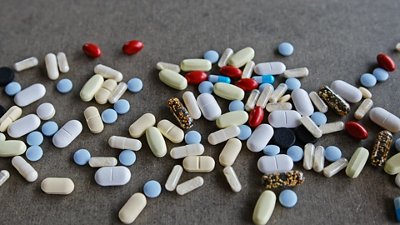The Vital Role of Prevention and Early Detection as Dengue Cases Rise
By the bioMérieux Editors | Reading time: 2 min
PUBLICATION DATE: SEPTEMBER 25, 2024
Understanding Dengue and Recommended Strategies for Prevention
As defined by the WHO, dengue is caused by an arbovirus (a virus transmitted by arthropods) .There are four distinct dengue virus serotypes: DENV-1, DENV-2, DENV-3 and DENV-4. Dengue is a viral, vector-borne infection that is transmitted to humans through the bite of infected mosquitos. In some cases, infection spread can also occur via human-to-mosquito transmission, as well as maternal transmission. Many people with DENV infection will be asymptomatic; however, those who develop symptoms may experience a rash, high fever, headache, body aches, or nausea. As noted by the authors in a review published in the Indian Journal of Pediatrics, “there are no definitive curative medications for dengue; management is supportive.” Treatment of symptoms may include rest, drinking plenty of fluids and taking medications for pain management. For severe DENV infections, hospitalization is often required. Severe dengue most commonly occurs among infants and patients with secondary dengue virus (DENV) infections (i.e., infection with a DENV type different from what they were previously infected with earlier in life).
Without curative medicines, strategies for combatting dengue rely heavily on prevention and early diagnosis. Historically, vector control strategies such as habitat modification, space spraying, and topical repellents have been highly effective in mitigating vector-borne diseases (VBDs). But adoption of these strategies can be limited due to a lack of sufficient resources and environmental changes. As stated in a study published in PLOS Neglected Tropical Diseases, “lack of funding and weak programmatic capacity undermine programmes and mean that we are not well equipped to face the pressing new challenges to VBD control, such as environmental change, insecticide resistance, and population growth.”
Vaccination is another safe and effective strategy that can help protect the public from infectious diseases. A large amount of research has gone into the development of a widely approved dengue vaccine. According to recent results from a phase 3 trial, a new single-dose dengue vaccine developed in Brazil has been deemed nearly 80% effective. “Once the data has been consolidated, we'll know how long the protection induced by the vaccine will last," said study author Esper Kallas, PhD. "If all goes well, we'll win definitive approval for the vaccine in 2025.” A safe, effective, and widely accessible dengue vaccine will likely have a significant impact on infection rates. Previously, the only licensed vaccine for dengue had an overall efficacy of 60.3 – 60.8%. It is imperative that as dengue vaccines become more widely accessible, that they are used in conjunction with vector control strategies to best mitigate infections.
The Need for Innovative Therapies and Early Detection for Dengue Virus
A lack of specific medicines for DENV infections highlights the need for innovative therapeutic strategies to better manage patient care. As noted by the authors of "World Dengue Day: A call for action", there have been numerous studies considering the role of inflammatory mediators in dengue pathogenesis and their ability to offer potential therapeutic targets. However, continued research to advance development of these therapeutic targets is necessary.
Diagnosing dengue can be challenging because many of the non specific symptoms overlap with other diseases (malaria, chikungunya, leptospirosis, typhoid…):. It is important to note that early detection of DENV using diagnostic tools and having access to proper care can greatly lower fatality rates for patients with severe DENV infection. A variety of diagnostic tools can be used to aid dengue diagnosis. Some of the most common include Nucleic Acid Amplification Tests (NAATs), serologic tests that utilize IgM antibody testing, and PRNTs. “Mortality from dengue can be reduced to almost zero by implementing timely, appropriate clinical management that involves early clinical and laboratory diagnosis, oral and intravenous rehydration, staff training and reorganization of health services,” concludes the WHO.
Dengue remains a significant threat to global public health as cases continue to increase at an alarming rate. An integrated approach that prioritizes spreading awareness and education about dengue, vector control strategies, innovative therapies, vaccination, and diagnostic tools are critical for improving patient outcomes and mitigating the spread of the virus.
YOU MAY BE INTERESTED IN THESE ARTICLES
SHARE THIS ARTICLE:
- Infectious Diseases


